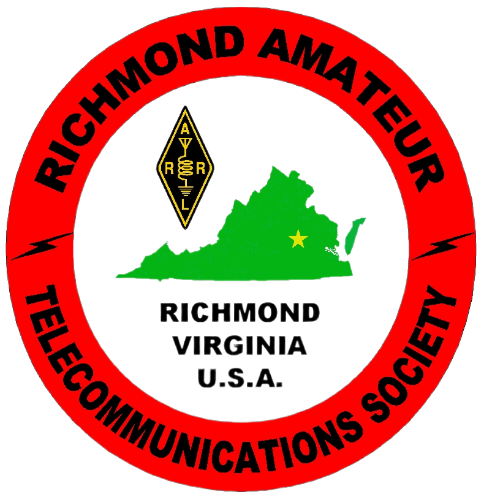|
Local Nets
Here are some of the VHF/UHF nets in our area. New to nets? Here are some helpful tips.
Daily Nets
- Daily - 8:00 AM - Central Virginia 6m Net
Called on 50.215 MHz, upper sideband (USB)
Weekly Nets
- Wednesdays at 7:00 pm - UHF Analog - RATS Weekly Club Net
Net Controls: Rob Czyzewski KB2OYI, Wayne Scarberry K9WVU, Jim Rubin W4PKR
Filling in? Download the script and log sheet.
- Wednesdays at 8:00 pm - Southwest VA DMR Net
DMR - Virginia Southwest Regional - Talk group 31513 on W4RAT DMR
- Thursdays at 7:00 pm - Virginia District 1 ARES Net
Meets on the KG4MRA/R 145.43 repeater with rotating net controls.
- Thursdays at 9:00 pm - Tidewater DMR Net
DMR - Virginia Tidewater Regional - Talk group 31515 on W4RAT DMR - Friday nights at 10:00 pm - SWVA Night Owls Net
DMR - Virginia Southwest Regional - Talk group 31513 on W4RAT DMR
- Saturdays at 8:00 pm - WIRES-X Virginia Room (C4FM Digital) - Weekly Net
Carried locally on our 146.88 repeater (digital mode only) and statewide on Virginia Room member repeaters.
- Saturdays at 9:00 pm - SWVA 6m/DMR Net
DMR - Virginia Southwest Regional - Talkgroup 31513 on W4RAT DMR, and on the 53.01 MHz repeater in Lexington, VA
- Sundays at 9:00 pm - Virginia Statewide DMR Net
DMR - Virginia Statewide - Talkgroup 3151 on W4RAT DMR
Bi-Weekly Nets
- First Friday at 7:00 pm, Third Friday at 9:00 pm - Richmond Area Simplex Net
146.490 MHz FM simplex. Also carried on Zoom (ID: 725 5931 4521 / pw: simplex)
WIRES-X Nets
Here is a list of WIRES-X nets available to C4FM users on our 442.55 MHz repeater.
Please note that the RATS WIRES-X system is not intended for extended monitoring of nets and high-traffic rooms. Disconnect from the room when you are finished with the net. For more information, see our 442.55 MHz repeater information.
